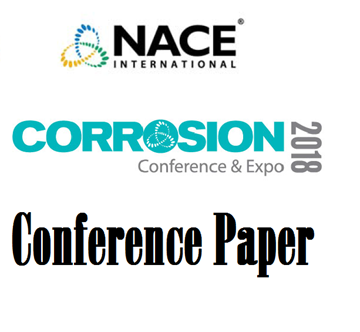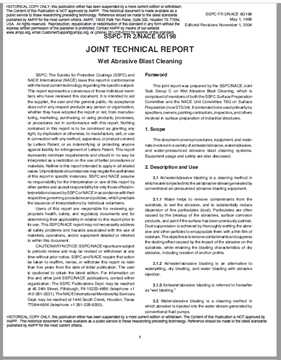Search
51315-6072-Evaluation of Direct-to-Metal Coatings Technologies
Also Purchased
51318-11067-The Performance Effect of Coating Rusty Steel with an Epoxy-Amine Coating
Product Number:
51318-11067-SG
Publication Date:
2018
$20.00
SSPC-TR2/NACE Publication TR6G198-1998, Wet Abrasive Blast Cleaning
Product Number:
24199-SG
$179.00
NACE Publication 6G197/SSPC-TU 2-1997, Design, Installation, and Maintenance of Coating Systems for Concrete Used in Secondary Containment
Product Number:
24193-SG
ISBN:
6G197 Coating S
$109.00
Recently viewed




